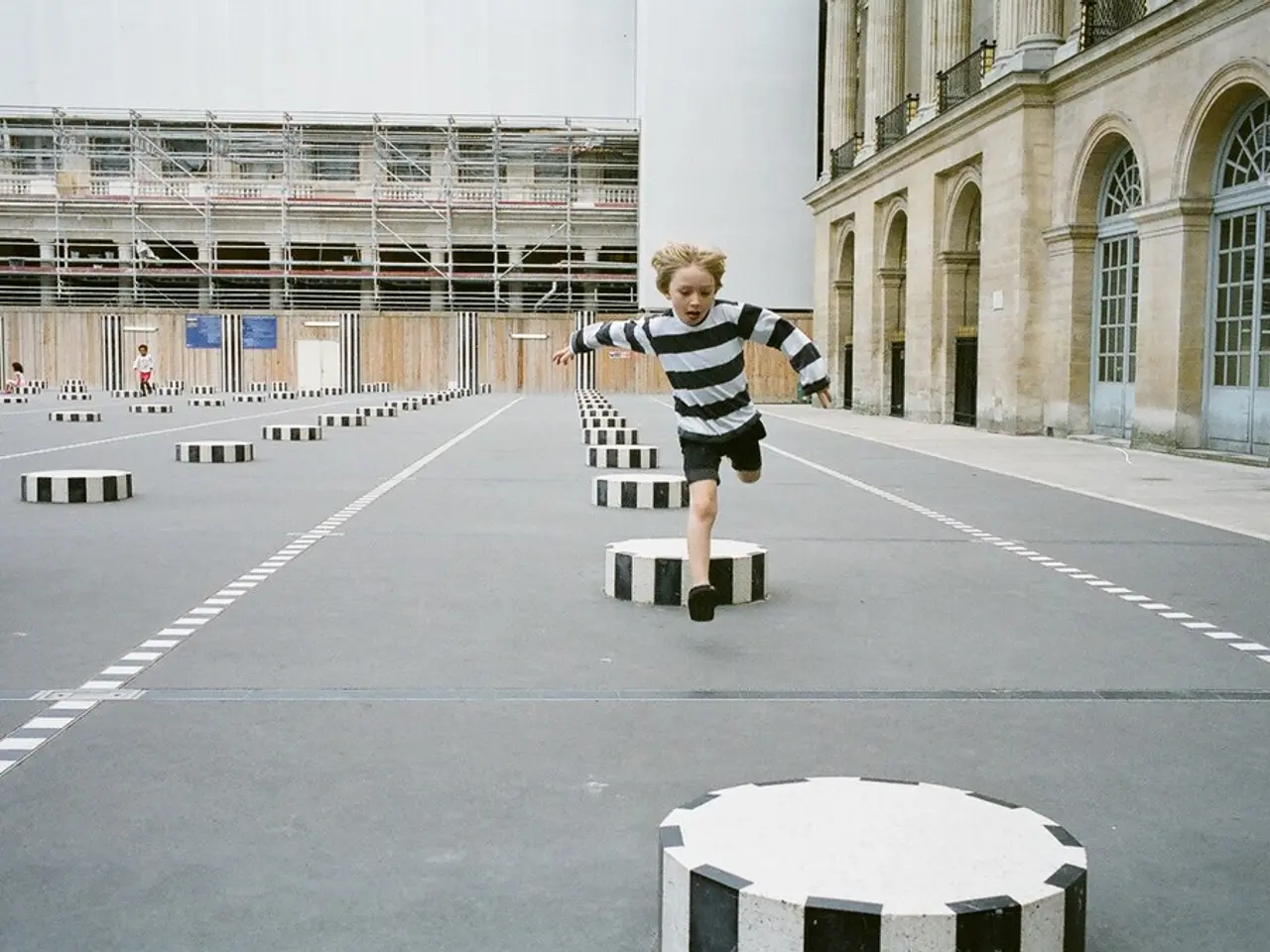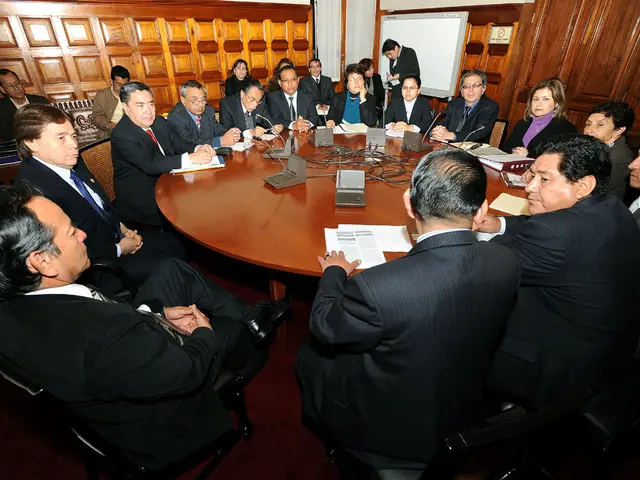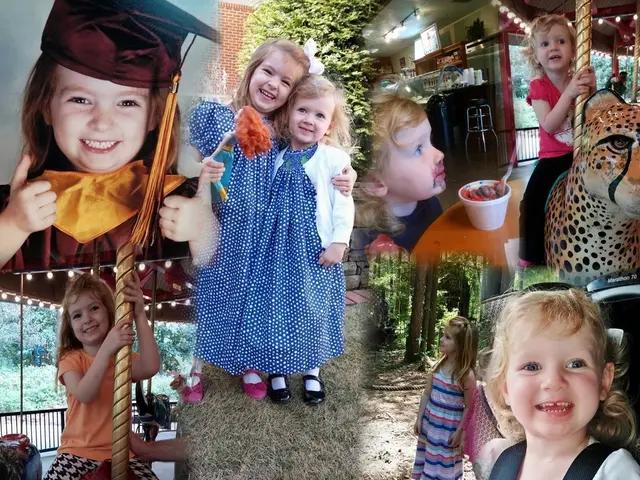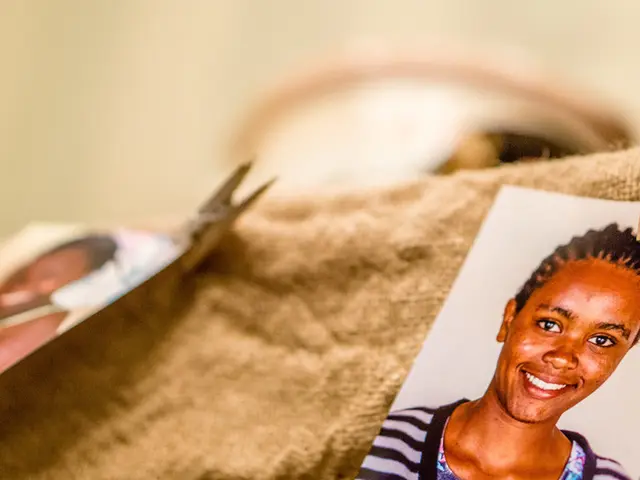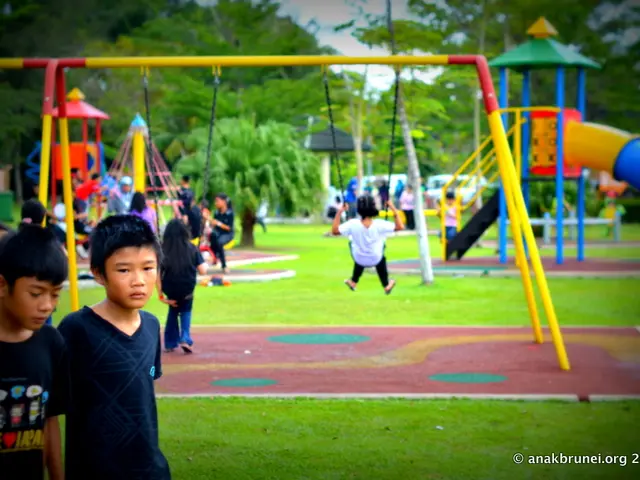Montessori Practices in Action: Emphasis on Freedom, Attention to Detail, and Authentic Learning Resources
In the heart of the city, a unique learning environment is fostering the growth of young minds - the STEM Baby Library. This innovative space introduces Montessori moments for the youngest visitors, offering a glimpse into the educational philosophy that has captured the attention of educators and parents worldwide for over a century.
The Montessori approach, pioneered by Italian physician and educator Maria Montessori, was born out of her observations of children's natural behaviour and learning processes in the early 20th century. Initially specializing in psychiatry and pediatrics, Montessori's work with children in mental asylums led her to a profound understanding of their innate desire to learn and explore. In 1907, she opened the Casa dei Bambini (Children’s House) in a poor Roman neighbourhood, where she developed her groundbreaking teaching methods.
The core principles of the Montessori approach are child-centered learning, prepared environment, whole-child development, respect and values, and scientific observation. This philosophy encourages self-directed education, allowing children to progress at their own pace, with the teacher serving as a guide rather than a lecturer. Classrooms are carefully arranged with specialized, hands-on materials that support sensory-based and experiential learning, fostering independence, concentration, and intrinsic motivation.
Montessori education aims to develop the physical, social, emotional, and cognitive facets of the child, nurturing respect, responsibility, and social grace alongside academic skills. Emphasis is placed on respect for oneself, others, and the environment, often modeled and practiced through "grace and courtesy" lessons incorporated into daily activities. Instructional strategies and materials are continuously refined based on careful observation of children's interactions and learning progress.
The benefits of the Montessori approach are evident in research and anecdotal evidence. A 2006 study conducted by researchers at the University of Virginia found that Montessori students exhibited advanced executive function skills compared to peers in traditional educational settings. In 2022, a study published in Child Development reported significant improvements in school readiness across multiple domains for marginalized girls in rural Nigeria using a Montessori-based early childhood education program.
At STEM Baby Library, Montessori principles are brought to life for the youngest learners. Soft, open-ended materials are arranged by size, color, and texture for infants and toddlers to explore patterns, order, and cause and effect. Families can also bring the Montessori mindset home by giving their child real materials, inviting them to help with daily routines, and respecting their concentration.
The results of this approach are evident in the calm, focused children who frequent the library. Parents often comment on the moments of concentration, responsibility, and quiet pride their children exhibit in the Montessori spaces. Educators at the museum often witness long periods of focused attention, especially at the Builder's Bench, where children are engaged in constructing intricate structures with wooden blocks.
In a fast-paced world, the Montessori approach emphasizes slowness, simplicity, and intentionality. By providing a prepared environment that encourages self-directed learning, respect, and exploration, the Montessori approach equips children with the foundational skills they need to thrive in the modern world - resilience, focus, and self-confidence.
The innovative STEM Baby Library integrates the Montessori approach, a pedagogical philosophy pioneered by Maria Montessori that encourages child-centered learning, respect, and self-directed education. The museum's dedicated space for young children, the 'museo dei bambini', mirrors Montessori's philosophy by fostering a 'lifestyle' of learning, constructive exploration, and 'education-and-self-development'.
